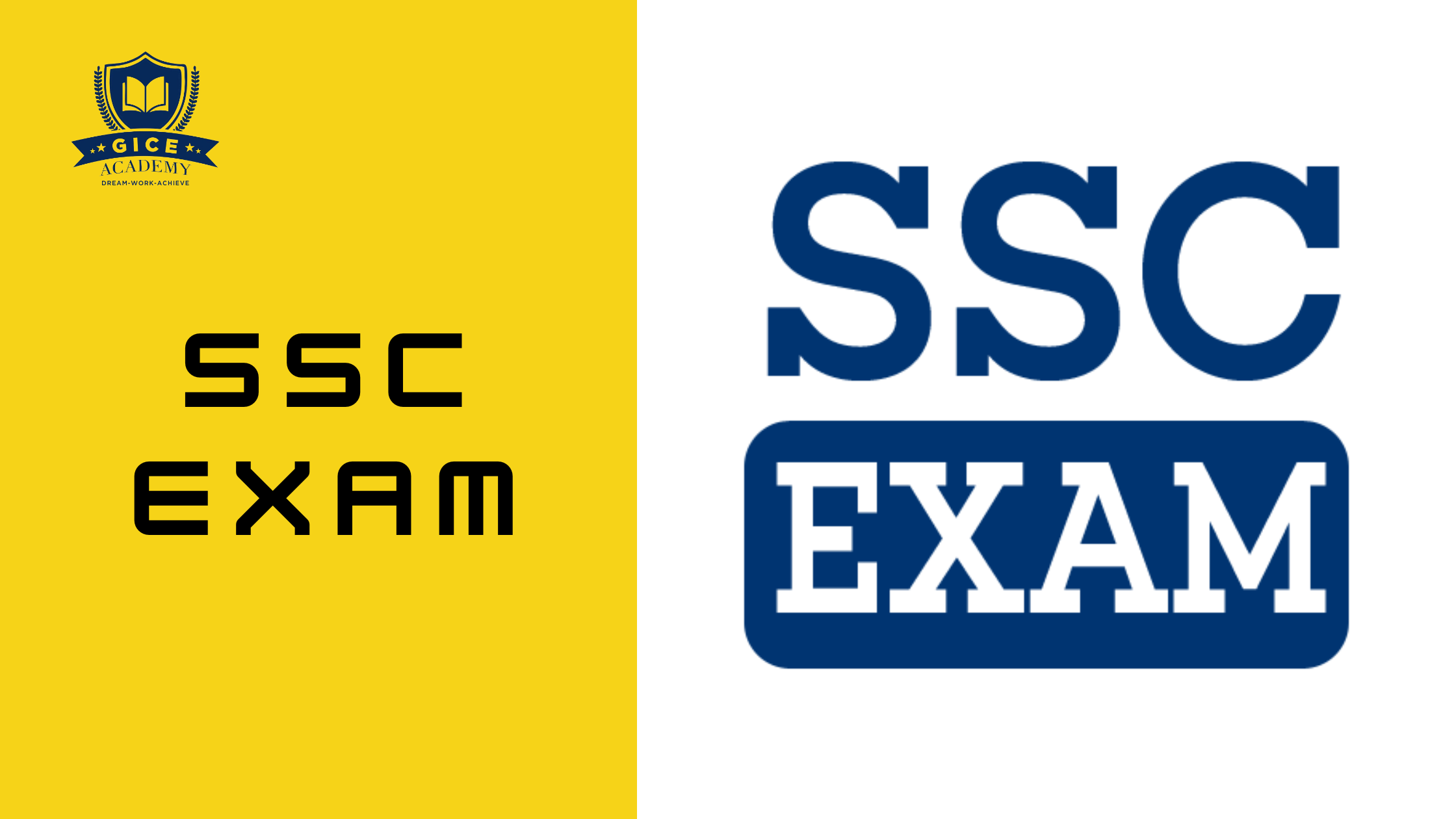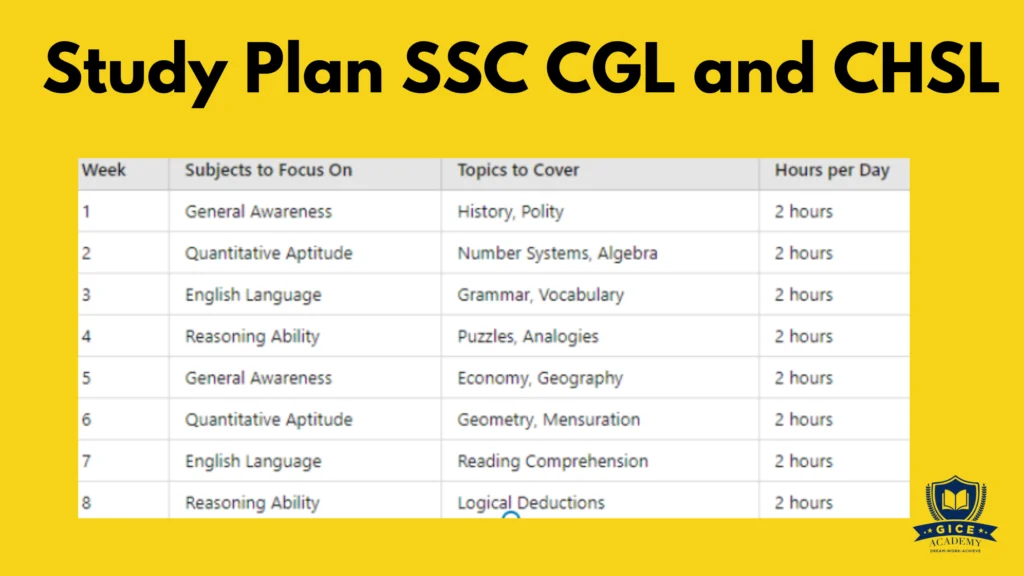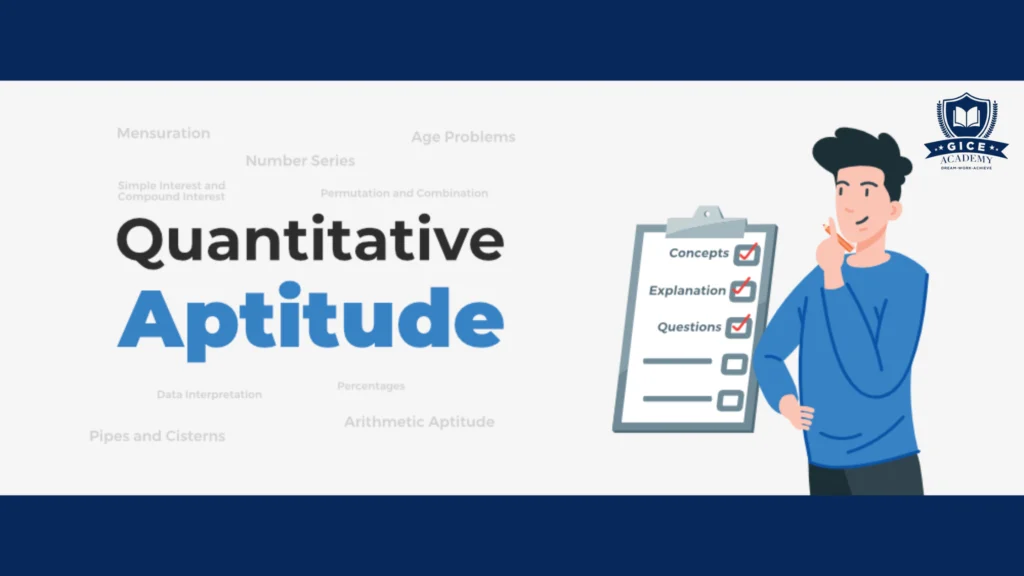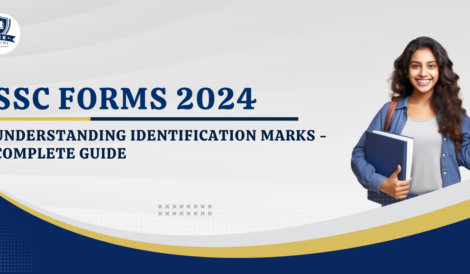Table of Contents
The Staff Selection Commission (SSC) exams are among the most sought-after competitive exams in India. These exams open doors to various government jobs, providing stability, prestige, and growth opportunities. Whether you’re aiming for the SSC Combined Graduate Level (CGL) exam, the Combined Higher Secondary Level (CHSL) exam, or other SSC exams, thorough preparation is key to success. This blog aims to guide you through the preparation process, offering tips, strategies, and a detailed study plan.Cracking the Staff Selection Commission (SSC) exam is a goal for many aspirants seeking government jobs in India. This comprehensive guide covers effective tips, strategies, and a detailed preparation plan to help you succeed in the SSC exams. From understanding the exam pattern to mastering each subject, this blog provides valuable insights to enhance your preparation and boost your chances of success.
Candidates can enhance their preparation by joining an SSC and SSC Coaching Classroom Programme at GICE Academy to receive study notes and a comprehensive guide for the SSC 2024 exam
Understanding the SSC Exam Pattern
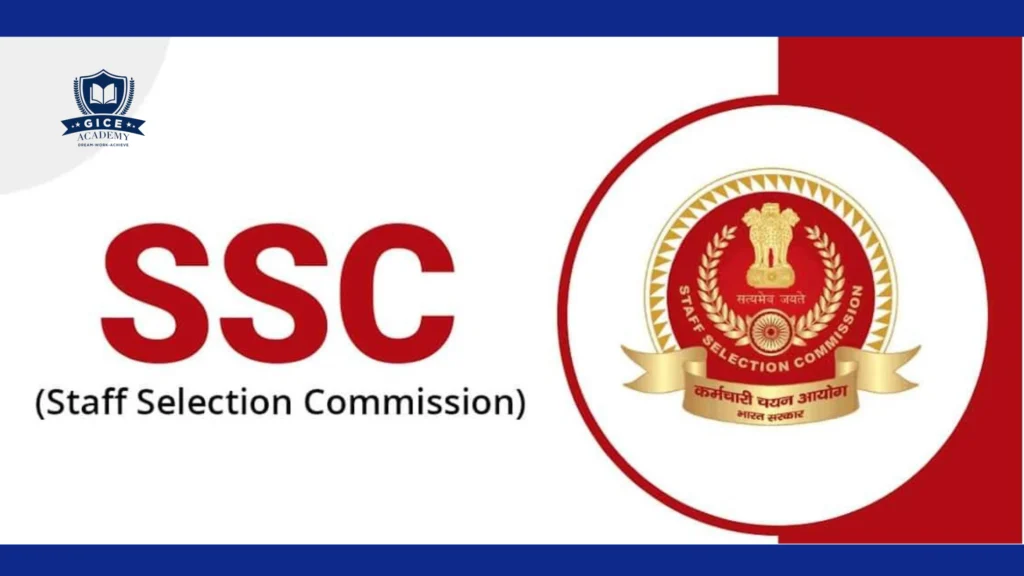
Before diving into preparation, it is crucial to understand the structure and pattern of the SSC exams. Each SSC exam has multiple tiers or stages, each designed to test different skills and knowledge areas.
Different Tiers and Stages of SSC Exams
- SSC CGL (Combined Graduate Level) Exam
- Tier-I: Preliminary exam (Objective type)
- Tier-II: Main exam (Objective type)
- Tier-III: Descriptive paper (Pen and paper mode)
- Tier-IV: Skill test/Computer proficiency test (CPT)
- SSC CHSL (Combined Higher Secondary Level) Exam
- Tier-I: Preliminary exam (Objective type)
- Tier-II: Descriptive paper (Pen and paper mode)
- Tier-III: Typing test/Skill test
- SSC MTS (Multi-Tasking Staff) Exam
- Paper-I: Objective type
- Paper-II: Descriptive paper
- Other SSC Exams
- Similar tiered structures with variations depending on the specific exam.
Detailed Exam Pattern for SSC CGL and CHSL
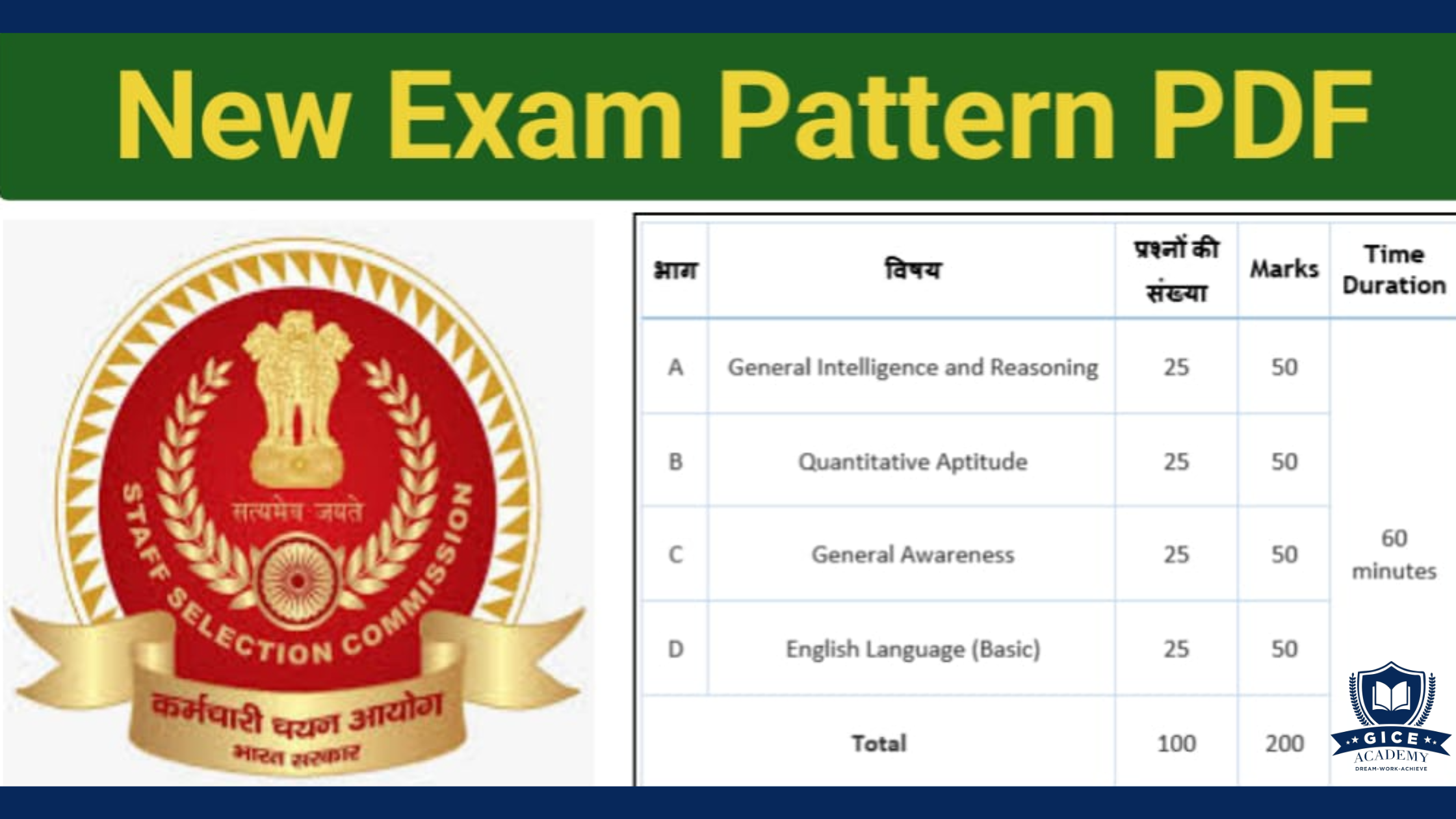
SSC CGL Exam Pattern
- Tier-I:
- Subjects: General Intelligence and Reasoning, General Awareness, Quantitative Aptitude, English Comprehension
- Total Questions: 100
- Total Marks: 200
- Duration: 60 minutes
- Tier-II:
- Subjects: Quantitative Abilities, English Language and Comprehension, Statistics, General Studies (Finance and Economics)
- Total Questions: Varies by subject
- Total Marks: 200 per paper
- Duration: 120 minutes per paper
- Tier-III:
- Descriptive Paper in English/Hindi
- Total Marks: 100
- Duration: 60 minutes
- Tier-IV:
- Skill Test/Computer Proficiency Test (CPT)
SSC CHSL Exam Pattern
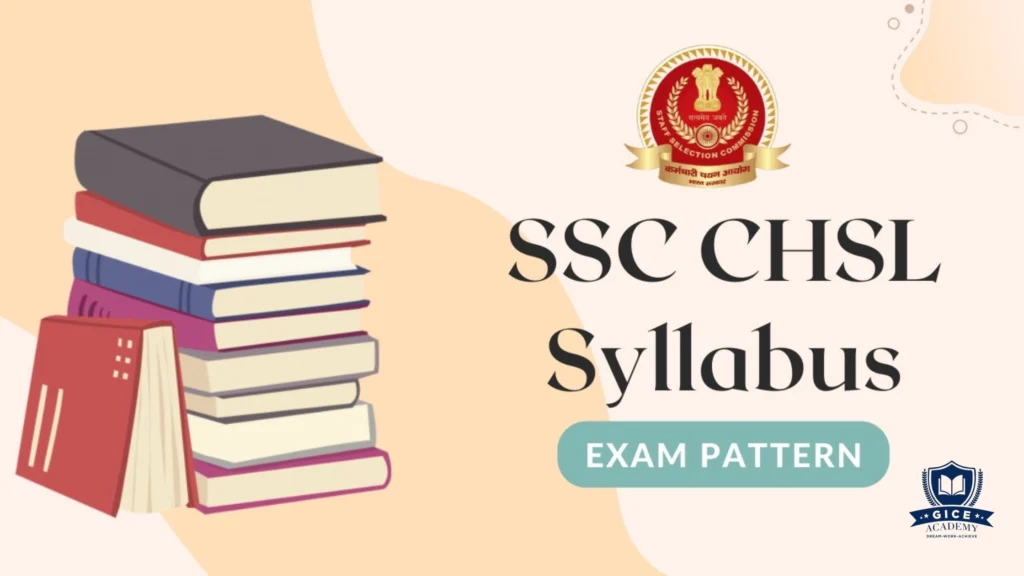
- Tier-I:
- Subjects: General Intelligence, English Language, Quantitative Aptitude, General Awareness
- Total Questions: 100
- Total Marks: 200
- Duration: 60 minutes
- Tier-II:
- Descriptive Paper in English/Hindi
- Total Marks: 100
- Duration: 60 minutes
- Tier-III:
- Typing Test/Skill Test
Creating a Study Plan
A well-structured study plan is crucial for effective SSC exam preparation. It helps in organizing your study schedule, tracking progress, and ensuring that all subjects and topics are covered systematically.
Importance of a Study Plan
- Time Management:
- A study plan allows you to allocate specific time slots to each subject, ensuring balanced preparation.
- Consistency:
- Following a study plan helps maintain consistency, which is key to retaining information and building a strong foundation.
- Progress Tracking:
- It allows you to track your progress, identify weak areas, and adjust your preparation strategy accordingly.
Sample Study Plan for SSC Exam Preparation
Repeat the cycle with increased intensity and additional practice tests.
Tips for Effective Time Management
- Prioritize Subjects:
- Identify your strengths and weaknesses, and allocate more time to weaker subjects.
- Set Achievable Goals:
- Break down your study plan into daily and weekly goals to stay motivated.
- Regular Breaks:
- Include short breaks between study sessions to avoid burnout.
- Use Study Aids:
- Utilize flashcards, mind maps, and other study aids for better retention.
Mastering General Awareness
General Awareness is a crucial section in SSC exams, testing your knowledge of current affairs, history, geography, and more. Here’s how to prepare effectively.
Key Topics in General Awareness
- Current Affairs:
- National and international events, awards, sports, and important dates.
- History:
- Indian freedom struggle, ancient and medieval history.
- Geography:
- Physical geography, Indian geography, world geography.
- Polity:
- Indian Constitution, political system, governance.
- Economy:
- Basic economic concepts, Indian economy, budget, and five-year plans.
Preparation Strategies and Resources
- Daily News:
- Read newspapers like The Hindu, Indian Express, and follow reliable news portals.
- Monthly Magazines:
- Subscribe to magazines like Pratiyogita Darpan for comprehensive coverage.
- Online Resources:
- Use websites and apps like GKToday, Gradeup, and Byju’s for current affairs and general knowledge quizzes.
- Standard Books:
- Refer to books like ‘Lucent’s General Knowledge’ and ‘Manorama Yearbook’.
Daily Habits to Enhance General Awareness
- Regular Reading:
- Dedicate at least 30 minutes daily to reading newspapers and magazines.
- Notes Making:
- Make concise notes of important events and facts for quick revision.
- Discussion Groups:
- Join study groups or online forums to discuss current affairs and general knowledge topics.
- Mock Tests:
- Take regular mock tests to assess your knowledge and improve speed.
Excelling in Quantitative Aptitude
Quantitative Aptitude is a significant part of the SSC exams, requiring strong mathematical skills and quick problem-solving abilities.
Important Topics in Quantitative Aptitude
- Number Systems
- Algebra
- Geometry
- Mensuration
- Trigonometry
- Data Interpretation
- Simplification
Tips and Tricks for Solving Problems Quickly
- Conceptual Clarity:
- Understand the basic concepts and formulas thoroughly.
- Shortcut Techniques:
- Learn and practice shortcut methods for quick calculations.
- Regular Practice:
- Solve a variety of problems daily to improve speed and accuracy.
- Mock Tests:
- Take mock tests to simulate exam conditions and identify weak areas.
Recommended Books and Practice Materials
- Books:
- ‘Quantitative Aptitude for Competitive Examinations’ by R.S. Aggarwal
- ‘Fast Track Objective Arithmetic’ by Rajesh Verma
- Online Resources:
- Websites like Gradeup, Testbook, and Byju’s offer practice tests and study materials.
- Apps:
- Use apps like Magoosh and Pocket Aptitude for daily practice and quizzes.
Improving English Language Skills
The English section of the SSC exam tests your grammar, vocabulary, and comprehension skills.
Areas to Focus On in the English Section
- Grammar:
- Parts of speech, tenses, subject-verb agreement, articles, prepositions.
- Vocabulary:
- Synonyms, antonyms, one-word substitutions, idioms, and phrases.
- Reading Comprehension:
- Passages with questions to test understanding and inference skills.
Preparation Tips and Strategies
- Grammar Practice:
- Study grammar rules and practice through exercises and quizzes.
- Vocabulary Building:
- Learn new words daily and use them in sentences to improve retention.
- Reading:
- Read English newspapers, magazines, and books to enhance comprehension skills.
- Mock Tests:
- Take regular mock tests to assess your performance and improve speed.
Mastering Reasoning Ability
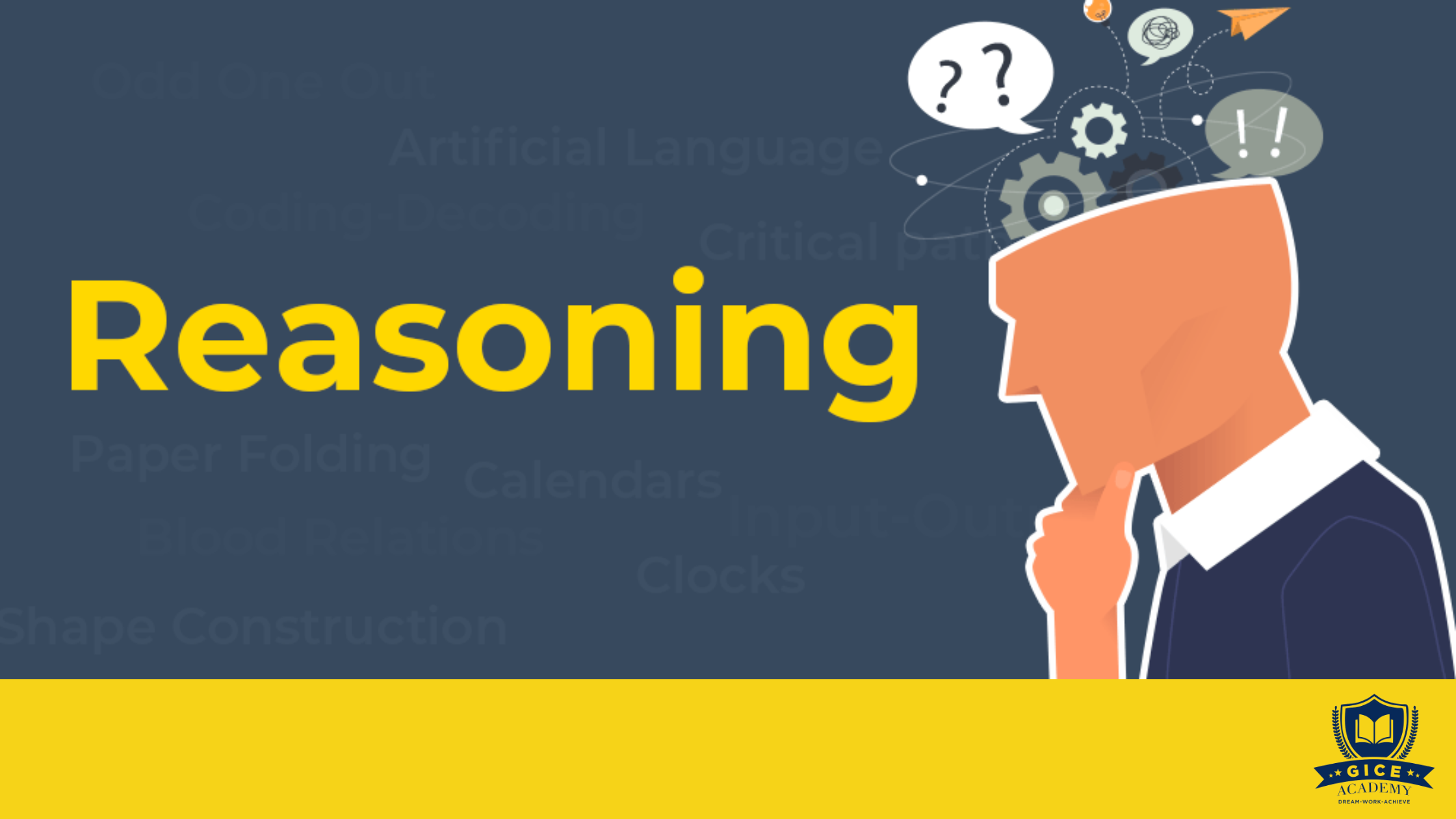
Reasoning Ability is a key component of SSC exams, designed to test logical thinking and problem-solving skills.
Key Topics in Reasoning Ability
- Logical Reasoning:
- Puzzles, syllogisms, seating arrangements, blood relations.
- Verbal Reasoning:
- Analogy, classification, series completion.
- Non-Verbal Reasoning:
- Pattern recognition, mirror images, figure matrices.
Strategies for Improving Reasoning Skills
- Understand the Basics:
- Familiarize yourself with different types of reasoning questions and the logic behind them.
- Practice Regularly:
- Solve a variety of reasoning questions daily to build familiarity and speed.
- Use Diagrams:
- Draw diagrams and charts to visualize problems, especially for puzzles and seating arrangements.
- Timed Practice:
- Practice solving questions within a time limit to simulate exam conditions.
Recommended Books and Practice Materials
- Books:
- ‘A Modern Approach to Verbal & Non-Verbal Reasoning’ by R.S. Aggarwal
- ‘Analytical Reasoning’ by M.K. Pandey
- Online Resources:
- Websites like Testbook, Gradeup, and Byju’s offer practice tests and reasoning quizzes.
- Apps:
- Use apps like Reasoning Aptitude and Pocket Logical Reasoning for daily practice.
Enroll a course for the SSC exam to gain rigorous practice and learn tricks and shortcuts. GICE Academy offers a Course designed to boost your concepts and speed.
Regular Practice and Mock Tests
Regular practice and taking mock tests are essential for effective SSC exam preparation.
Importance of Mock Tests
- Exam Simulation:
- Mock tests simulate real exam conditions, helping you get accustomed to the exam format and time constraints.
- Identify Weak Areas:
- They help identify weak areas, allowing you to focus your efforts on improving them.
- Performance Analysis:
- Detailed analysis of mock test results helps track progress and make necessary adjustments to your study plan.
Strategies for Effective Mock Test Practice
- Consistent Practice:
- Take mock tests regularly, at least once a week, to stay in touch with the exam format.
- Review Mistakes:
- Analyze your mistakes and work on improving those areas.
- Time Management:
- Practice managing your time effectively to ensure you can complete the exam within the given duration.
Recommended Resources for Mock Tests
- Online Platforms:
- Websites like Testbook, Gradeup, and Byju’s offer a wide range of mock tests for SSC exams.
- Coaching Institutes:
- Many coaching institutes provide mock test series and detailed performance analysis.
- Apps:
- Use apps like Oliveboard, Adda247, and Testbook for daily quizzes and full-length mock tests.
Maintaining Physical and Mental Health
Maintaining good physical and mental health is crucial for optimal performance in the SSC exam.
Importance of a Healthy Lifestyle During Preparation
- Physical Well-being:
- Regular exercise and a balanced diet help maintain energy levels and concentration during study sessions.
- Mental Well-being:
- Managing stress and staying motivated are essential for consistent and effective preparation.
Tips for Managing Stress and Staying Motivated
- Regular Exercise:
- Engage in physical activities like walking, jogging, yoga, or any sport to relieve stress and stay fit.
- Healthy Diet:
- Eat a balanced diet rich in fruits, vegetables, proteins, and whole grains to keep your body and mind nourished.
- Adequate Sleep:
- Ensure you get 7-8 hours of sleep daily to rejuvenate your body and mind.
- Mindfulness and Meditation:
- Practice mindfulness and meditation to manage stress and enhance focus.
- Breaks and Hobbies:
- Take regular breaks and engage in hobbies to relax and avoid burnout.
Balancing Study and Relaxation

- Scheduled Breaks:
- Include short breaks between study sessions to refresh your mind.
- Recreational Activities:
- Engage in activities like reading, listening to music, or spending time with family and friends to relax.
- Avoid Overstudying:
- Avoid studying for long hours without breaks as it can lead to fatigue and reduced productivity.
By maintaining a healthy lifestyle, managing stress effectively, and staying motivated, you can enhance your preparation and increase your chances of success in the SSC exam.
FAQ
What are some effective strategies for solving reasoning questions?
Understand the basics of logical, verbal, and non-verbal reasoning, practice regularly, use diagrams for visualization, and take timed practice tests to improve your speed.
How can I enhance my English language skills for the SSC exam?
Study grammar rules, expand your vocabulary, practice reading comprehension passages, and take mock tests to improve your speed and accuracy.
What are the most important topics in Quantitative Aptitude for the SSC exam?
Focus on number systems, algebra, geometry, mensuration, trigonometry, data interpretation, and simplification. Practice solving problems quickly and accurately.
Can I prepare for the SSC exam without coaching?
Yes, many candidates successfully prepare for the SSC exam without coaching by using quality study materials, online resources, and self-discipline.
How important are mock tests in SSC exam preparation?
Mock tests are crucial as they help in familiarizing with the exam format, improving time management, and identifying weak areas.

